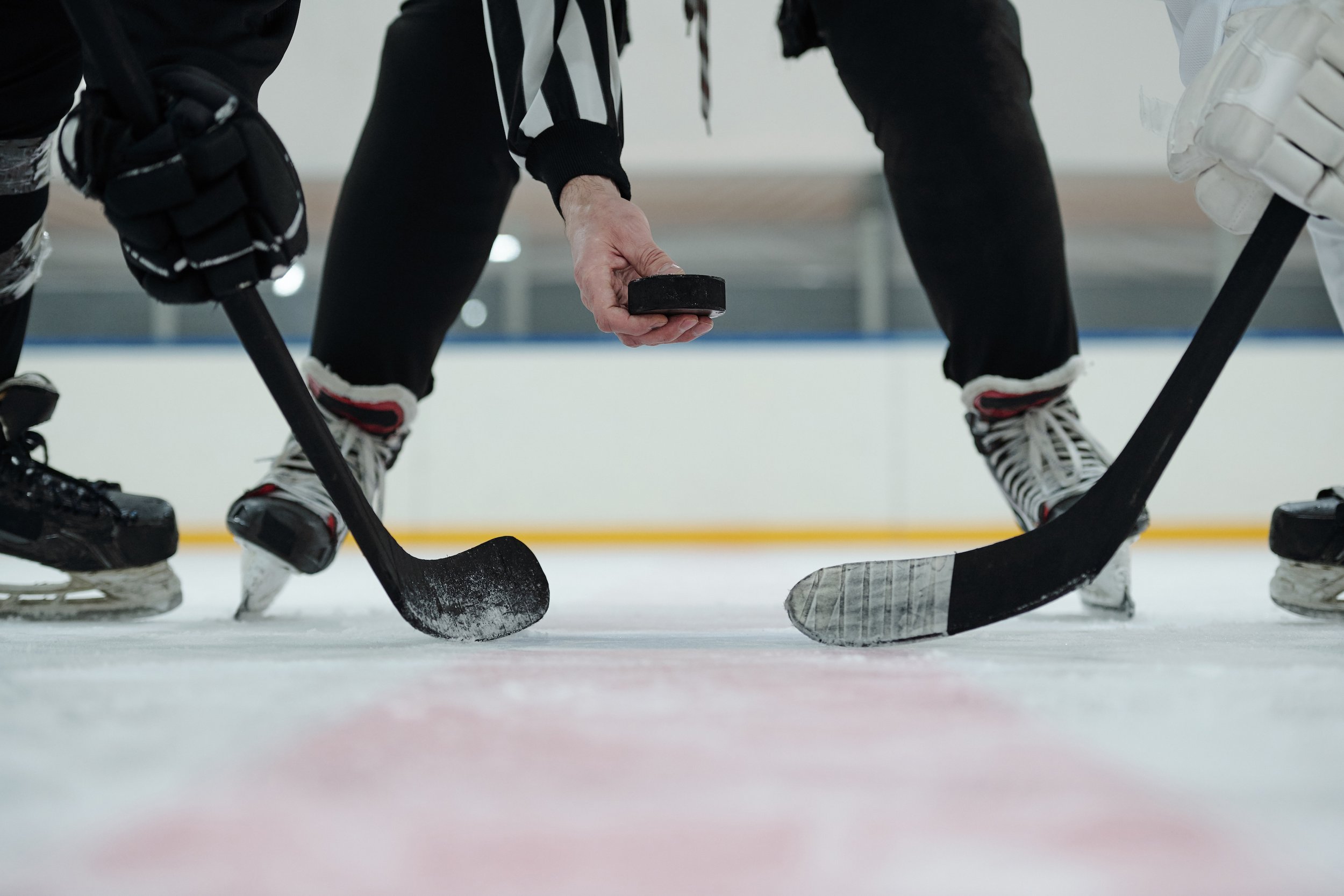
The Mental Edge Playbook
No clichés. No hype. Just real stories, strategies, and mindset tools for hockey players who want to lead, compete, and win from the inside out.
Charging into Storms and Dodging the Rain: Lessons from Buffalo and Cows for Hockey
Nature has always provided us with incredible metaphors and lessons for life. One such fascinating observation lies in the contrasting behaviors of buffalo and cows when confronted with storms. While buffalo charge fearlessly into storms, cows instinctively run away from them.
The Two Wolves: Lessons from Cherokee Wisdom Applied to Hockey
I love to find valuable life lessons embedded in ancient wisdom. One such profound teaching comes from the Cherokee Nation in the form of a powerful story about two wolves. This allegory, rooted in Native American folklore, beautifully illustrates the ongoing internal struggle between positive and negative forces within us.
Youth Hockey Coaching: Two Items You Must Consider When Building a Preseason Plan
Specifcally, there are two main variables that stand out to me when putting together an effective plan for preseason practices when these two groups are involved. These two areas are: physical and cognitive.
Mastering the Game: Unlocking Unparalleled Focus in Hockey
As I reflect on that momentous achievement, one thing becomes clear: laser-like focus was the key to my success. The unwavering determination, mental fortitude, and single-minded focus required to cross that finish line are strikingly similar to the demands of another exhilarating sport - hockey.
The Dynamic Duo: Unleashing the Power of the Mission Commander and Skilled Pilot
Success of a mission or a hockey game rests on the harmonious collaboration between the mission commander and the skilled pilot. Similarly, in our personal lives, balancing the roles of our conscious mind (Self 1) and our subconscious mind (Self 2) is vital for growth and achievement.
Cultivating Responsiveness: A Guide for Hockey Coaches
Embracing responsiveness can significantly boost your coaching effectiveness. When you consistently respond to your players' queries, concerns, or suggestions, they feel valued and heard. Timely responses demonstrate your commitment to their growth and development, fostering a sense of trust and loyalty.
How to Choose the Right Developmental Approach for Your Hockey Team
When it comes to building a successful hockey team, choosing the right developmental approach is crucial. Just like any other sport, hockey requires a strategic and systematic approach to nurturing the skills and talents of players at various stages of their development.
Team Conflict Prevention: Three Items Every Hockey Coach Should Deploy
I want to explore three vital aspects of coaching: setting clear expectations and goals, practicing consistency, and treating every athlete fairly. By focusing on these key elements, you can elevate your coaching approach, inspire your team, and most importantly - reduce the potential for team conflict.
Creating a Winning Environment: Four Important Components of Positive Parenting in Hockey
I recently had the opportunity to go through the Positive Parenting Within School Programs course offered by The National Federation of State High School Associations (NFHS). It served as a great reminder for how positive parenting within school programs is such a critical component of creating a supportive and nurturing environment for children to thrive academically, emotionally, and socially.
Unlocking Success: Exploring Two External Hockey Coaching Situations
If I could envision my ideal scenario, I would have a coach available for every major aspect of my life. Why? Outside coaches have the power to elevate any area of your life or game where you want to improve or address weaknesses. They are true game changers when it comes to personal and professional development.
Building Your Winning Team: The Essential Elements of an Inner Circle for Hockey Players
In my 17 years of experience running my previous company, Ethos3, a company dedicated to excellence, I have discovered the power of cultivating a strong inner circle. While discussions about friendships and relationships may not always be a priority, their importance should not be underestimated, especially for hockey players seeking success on and off the ice.
The Importance of Responsiveness in Hockey Coaching: Strategies for Success
As hockey players, we strive for success both on and off the ice. One key ingredient that can propel a team towards greatness is responsiveness. Just like in a tennis match, where the ball is constantly exchanged, responsive communication is vital for effective coaching and player development. By doing so, teams can create an environment where every player feels valued, heard, and respected.
Unleashing the Warrior Within: How Enduring Hell Elevates Hockey Players
The best hockey players are willing to endure hell and they are gritty masters of consistency. They are predictable, habitual, and willingly embrace seemingly monotonous lives in order to achieve something extraordinary. And as hockey players, adopting this winning formula can lead to remarkable success on and off the ice.
The Difference Between Trying and Committing: Unlocking Success in Hockey
Life experience like what I shared above often demonstrates a common pattern among many of us. We find ourselves attempting numerous endeavors, yet failing to wholeheartedly commit when presented with the opportunity. Hence, it comes as no surprise that this phenomenon is prevalent in the realm of hockey, where young players often prematurely abandon their pursuits.
Why a Hockey Coach Should Always Be Learning and Growing: Key Strategies for Success
Access to books is an undervalued form of wealth in our country today. Within those pages lie entire worlds, galaxies, and philosophies. With a simple download or a trip to the library, you gain access to the profound wisdom and life lessons of some of the greatest minds.
The Science of Learning: How Cognitive Load Theory Can Benefit Hockey Coaching
As a hockey coach, you are tasked with not only teaching your players the fundamentals of the game but also ensuring that they retain information. One way to improve your coaching techniques is by understanding cognitive load theory and how it applies to hockey coaching.
Saying Sorry as a Hockey Coach: Why It Matters and How to Do It Right
As a hockey coach, apologizing and saying "I'm sorry" can be challenging, as it often requires us to set aside our ego and confront our insecurities. However, if we make it a habit to take responsibility for our mistakes, we can experience a sense of peace and empowerment. By owning up to our wrong-doings, we demonstrate integrity and build trust in our relationships.
How the Thought Programs of Love and Fear Impact Hockey Players
The thought programs of love and fear are important concepts in hockey and can have a significant impact on a hockey player's performance. Players who use a love-based thought program are more likely to succeed on the ice and achieve their goals, while those who use a fear-based thought program may struggle to perform at their best.
The Maturation Effect in Hockey: Understanding the Role of Physical and Mental Development
The maturation effect refers to the natural developmental changes that occur in an individual over time, leading to improvements in their performance or behavior. In the context of hockey, the maturation effect typically refers to the physical and mental changes which occur as athletes grow and develop, which can lead to improvements in their athletic performance.
My Coaching Philosophy for Hockey
My coaching philosophy is rooted in a growth mindset. I believe all athletes have the potential to improve and develop, and I see my role as a coach to help them reach their full potential. I also believe hockey is more than just a sport - it is a powerful metaphor for life. Hockey requires belief, vision, discipline, and a commitment to excellence both on and off the ice.
Want to Level Up Your Mental Game?
Put an end to your slump and level up your confidence so you can succeed on and off the ice.




















